Understanding the Critical Intersection of Sleep and Substance Use
Sleep and addiction are deeply intertwined, with sleep disturbances both contributing to and resulting from substance use. Disrupted sleep not only hampers recovery but also increases the risk of relapse, making it essential to explore how sleep affects addictive behaviors. This article delves into the neurobiological mechanisms linking sleep and addiction, examines the impact of various substances on sleep patterns, and discusses strategies to improve sleep as part of comprehensive addiction treatment.
The Neurobiology of Sleep and Addiction
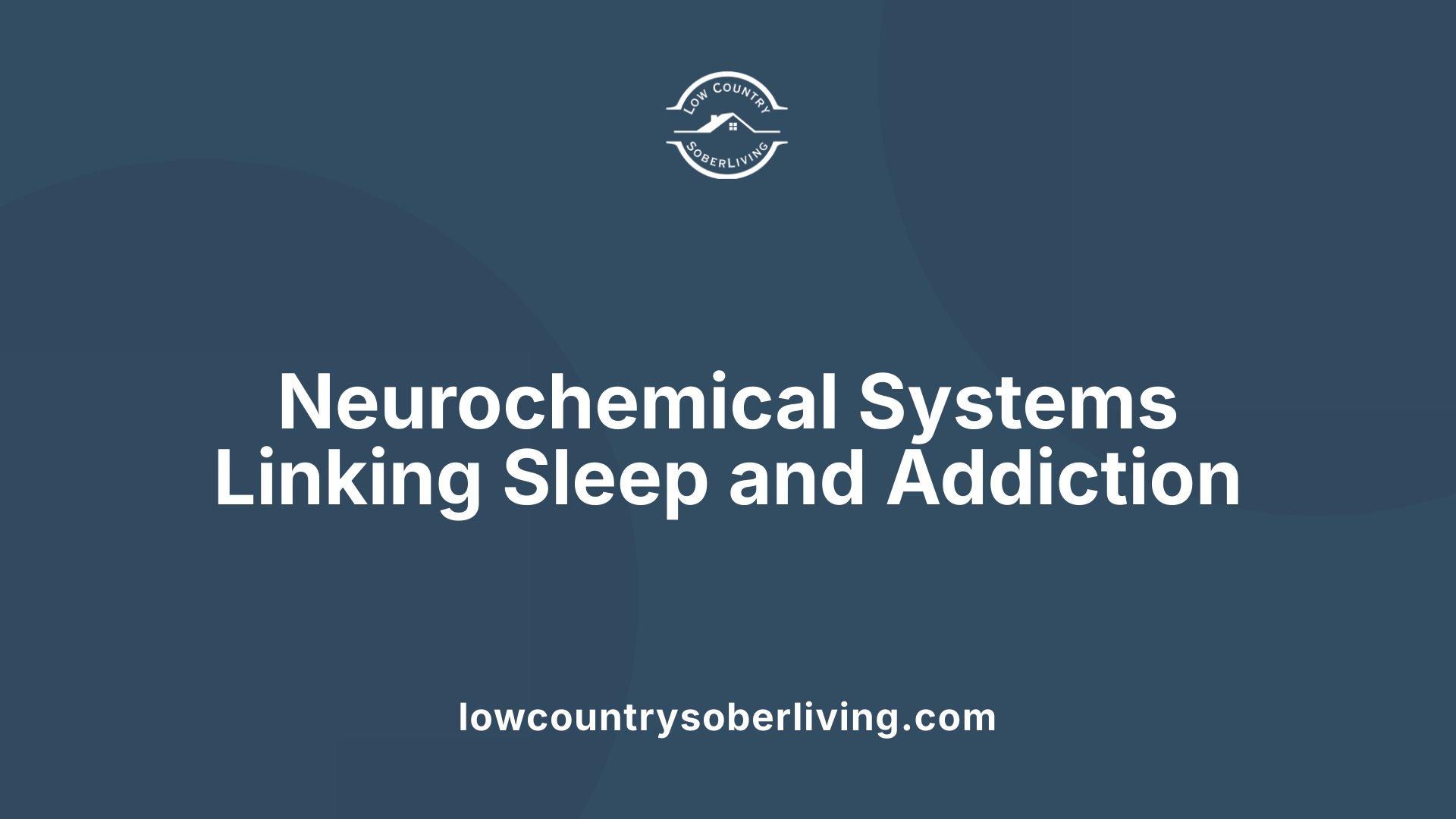
How neurotransmitter systems involved in sleep regulate addiction
The brain's regulation of sleep involves several neurotransmitter systems that are also critically involved in addiction processes. The orexin system, which promotes wakefulness and arousal, becomes hyperactivated during drug exposure, especially in opioid use, supporting heightened arousal states and compulsive drug-seeking behavior. In addition, dopamine neurons originating from the ventral tegmental area (VTA) are pivotal in reward processing and arousal. Drugs of abuse such as cocaine, methamphetamine, and opioids enhance dopaminergic signaling, which not only reinforces drug-taking but also disrupts normal sleep patterns.
Serotonin, released from the raphe nuclei, modulates sleep and wakefulness, influencing transitions between sleep stages. Opioids and other substances can alter serotonin levels, leading to disturbances in sleep architecture. Histamine, another arousal-promoting neurotransmitter, is activated by chronic opioid use, further impairing sleep quality. These interconnected systems—orexin, dopamine, serotonin, and histamine—regulate the balance between sleep and wakefulness, and their dysregulation by drugs of abuse can promote sustained addiction.
Impact of sleep loss on brain circuits related to reward and impulsivity
Sleep deprivation and restriction modify neural circuits associated with reward processing and impulsivity, heightening vulnerability to addictive behaviors. Animal models consistently show that sleep restriction increases preference for addictive substances like alcohol, methylphenidate, and cocaine. The disruption of sleep impairs the brain's reward circuitry, including the nucleus accumbens and prefrontal cortex, leading to diminished impulse control and increased risk-taking.
The hyperarousal state caused by sleep loss elevates activity in arousal-related systems, such as orexin and noradrenergic pathways in the locus coeruleus. This heightened state makes individuals more prone to seeking substances as a means of relief, fueling a cycle of use and relapse. Additionally, sleep deprivation hampers cognitive functions such as decision-making and judgment, essential for resisting drug cravings, further increasing the likelihood of relapse.
Molecular changes in sleep-regulating genes during addiction
Addiction induces profound molecular alterations in genes that regulate circadian rhythms and sleep. For instance, the gene NPAS2, which is involved in circadian regulation, loses rhythmicity in individuals with opioid addiction. This disruption affects the body's internal clock, leading to irregular sleep patterns and heightened vulnerability to relapse.
Experimental studies in mice demonstrate that blocking NPAS2 increases drug-seeking behaviors and worsens sleep disturbances, indicating its role in addiction vulnerability. These changes extend to other clock genes and neuropeptides that govern sleep-wake cycles. Chronic drug use also causes lasting impacts on gene expression within brain regions associated with addiction, such as the nucleus accumbens and prefrontal cortex.
Overall, the molecular disturbances in sleep-regulating genes contribute to the persistent sleep problems observed in addicts, which in turn perpetuate the cycle of addiction and hinder recovery.
| Neurotransmitter System | Role in Sleep | Impact During Addiction | Effect on Sleep Architecture |
|---|---|---|---|
| Orexin | Promotes wakefulness | Upregulated in opioid exposure | Supports hyperarousal and insomnia |
| Dopamine | Modulates reward and arousal | Elevated in drug use, alters sleep cycle | Disrupts REM and NREM stages |
| Serotonin | Regulates sleep-wake transitions | Dysregulated by substances | Impairs sleep quality |
| Histamine | Promotes arousal | Activated chronically, impairs sleep | Increases wakefulness |
Understanding how these systems interact underscores the importance of targeting neurochemical pathways to improve sleep and reduce addiction susceptibility.
The Consequences of Sleep Deprivation on Overall Health
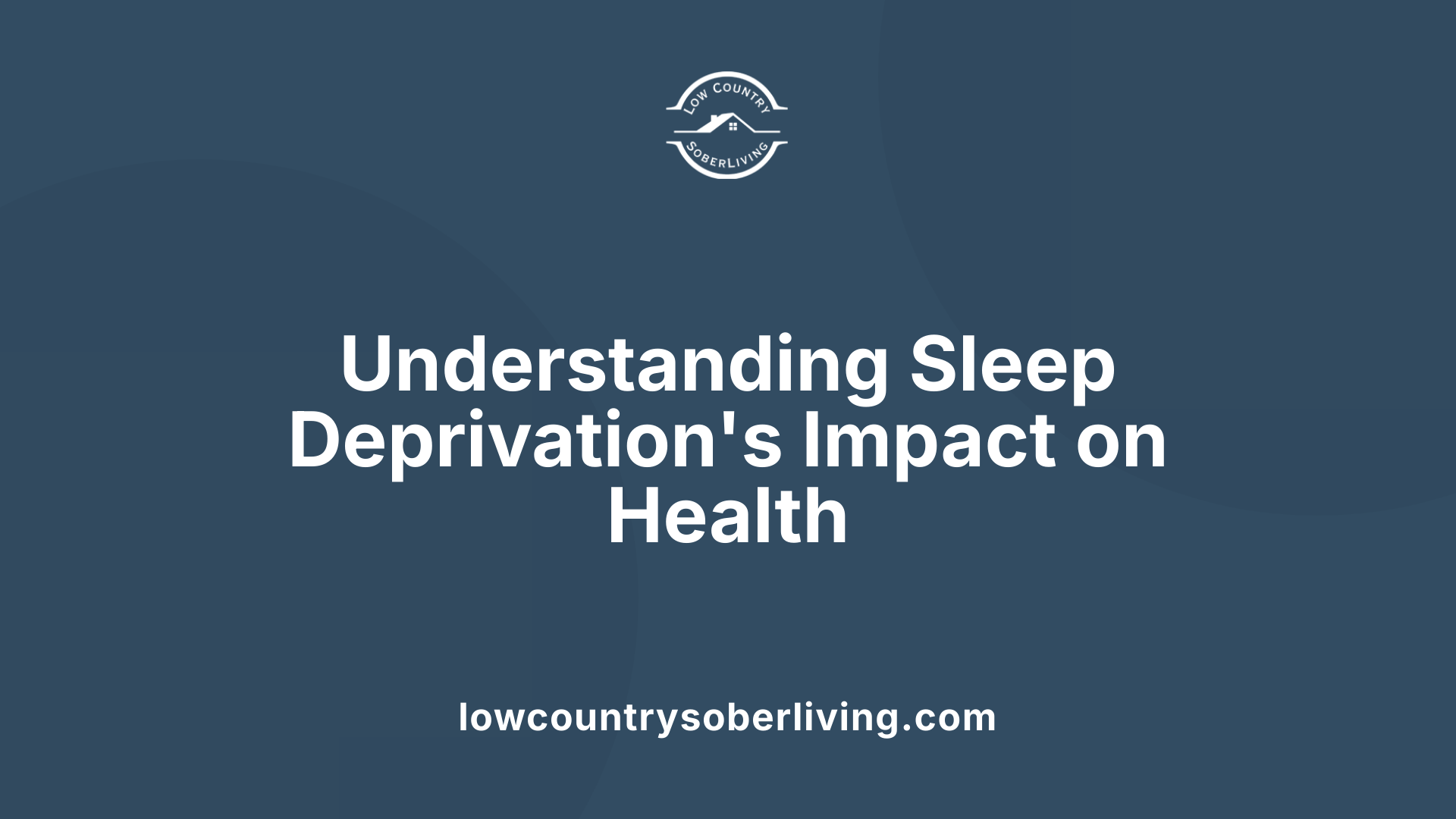
What happens if you are constantly sleep deprived?
Chronic sleep deprivation profoundly affects both mind and body, leading to a wide array of health issues. When sleep is consistently lacking, cognitive functions such as learning, memory, judgment, and reaction time decline significantly. This impairment increases the likelihood of accidents and mistakes, which can be dangerous in everyday life.
Emotionally, sleep deprivation heightens vulnerability to mental health disorders like depression and anxiety. It hampers emotional regulation, making mood swings and irritability more common, thereby affecting social and personal relationships.
Physically, ongoing sleep deficits are associated with an increased risk of developing serious health conditions. These include cardiovascular diseases such as hypertension, coronary artery disease, and stroke. Sleep loss also elevates the risk of metabolic disorders like type 2 diabetes and obesity. Additionally, a weakened immune system due to lack of sleep makes individuals more susceptible to infections.
The biological impacts extend further, affecting hormonal balance and inflammatory processes, which can exacerbate existing health problems or promote new ones. Over time, persistent sleeplessness can lead to a reduction in life expectancy. The cumulative effect of these health risks underscores the importance of adequate sleep for overall well-being.
Cognitive and emotional impairments caused by sleep deprivation
Sleep loss hampers cognitive abilities crucial for daily functioning. Memory consolidation is compromised, making it harder to retain new information or recall learned material. Decision-making tends to become impaired, with reduced problem-solving skills and increased impulsivity.
Emotionally, sleep deprivation can cause mood disturbances, including heightened anxiety, irritability, and depressive symptoms. The brain's capacity to regulate emotions is diminished, leading to difficulty managing stress and emotional responses.
Research indicates that even short-term sleep restriction impacts emotional resilience, while long-term deficits can create entrenched mental health issues. This combination of cognitive and emotional impairments not only deteriorates quality of life but also increases the risk of substance misuse as individuals attempt to self-medicate.
Physical health conditions linked to poor sleep
Poor sleep quality is linked to numerous physical health problems. The risks of cardiovascular conditions are elevated, including high blood pressure, arrhythmias, and increased risk for heart attacks. The impact extends to metabolic health, contributing to insulin resistance and the development of type 2 diabetes.
Obesity is strongly associated with sleep deprivation, partly due to hormonal changes that increase appetite and cravings for high-calorie foods. The immune system also weakens, reducing the body’s ability to fight infections and prolonging recovery times.
Sleep disorders such as obstructive sleep apnea, which are more prevalent among those with sleep deficits, further worsen these health risks and can cause daytime fatigue, impaired concentration, and decreased overall productivity.
Treatment of sleep-related health risks involves addressing underlying sleep issues, improving sleep hygiene, and in some cases, medication. Recognizing the broad impact of poor sleep can motivate proactive measures to enhance sleep quality, thereby supporting better health and longevity.
| Aspect | Effects | Additional Notes |
|---|---|---|
| Cognitive Function | Memory decline, impaired decision-making, decreased reaction time | Critical for daily safety and productivity |
| Emotional Well-being | Increased anxiety, irritability, depression | Affects social interactions and mental health |
| Heart Health | High blood pressure, increased risk of cardiovascular disease | Major contributor to early mortality |
| Metabolic Processes | Insulin resistance, obesity | Central to development of diabetes |
| Immune System | Weakened immune responses | Less effective infection defense |
Understanding these consequences emphasizes the importance of prioritizing adequate, quality sleep as a cornerstone of health, especially given its widespread impact across bodily systems.
Sleep’s Role in Physical and Emotional Recovery During Addiction Recovery
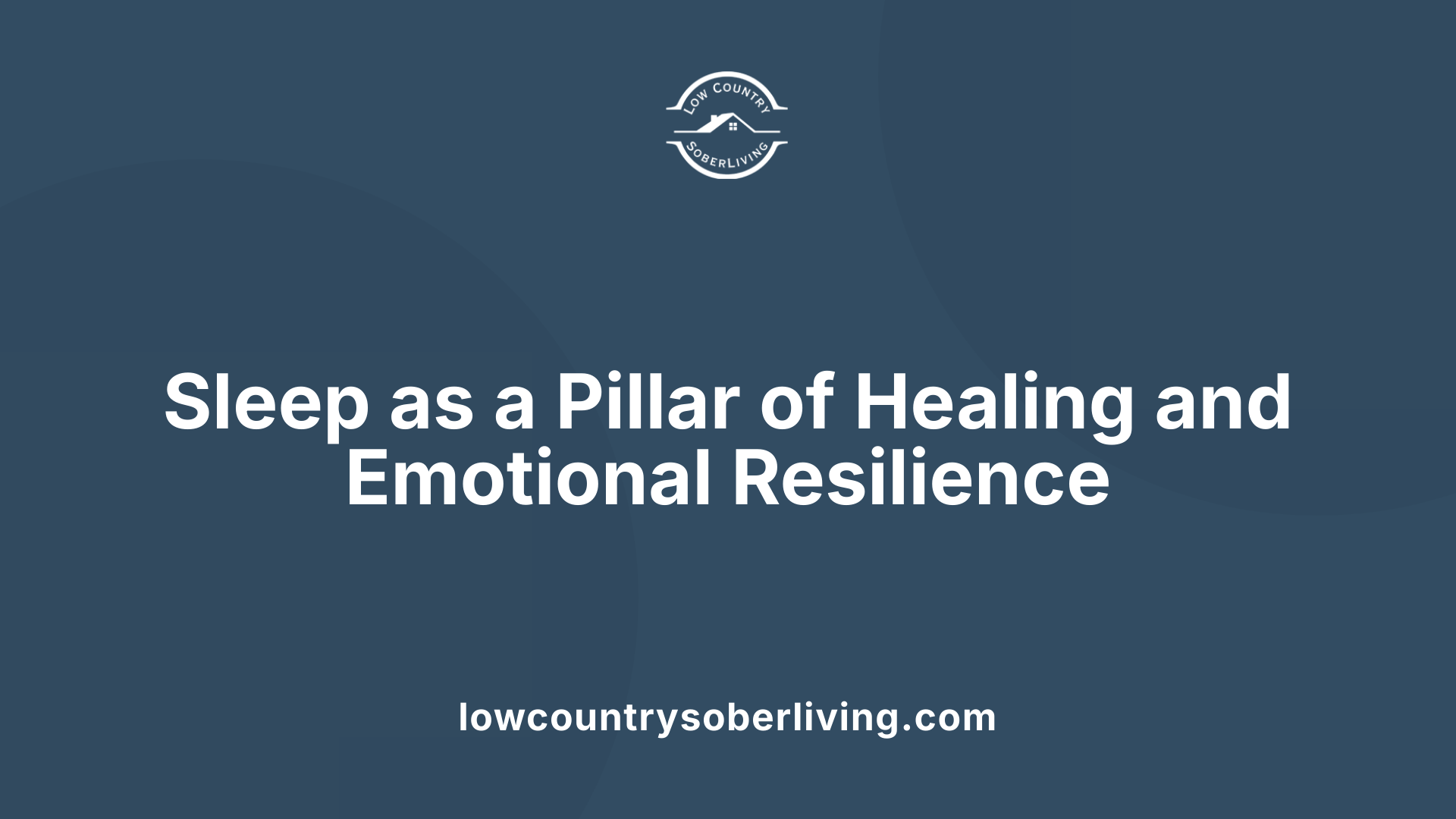
How sleep supports tissue repair and immune function
Sleep is essential for the body's healing processes. During deep sleep stages, the body releases growth hormones that promote tissue growth and repair. This process is critical for individuals recovering from addiction, as their bodies are often in a vulnerable state needing repair. Sleep also boosts immune function, helping the body fight infections and recover more efficiently. Poor sleep or sleep deprivation can weaken immune responses, increase inflammation, and slow down healing, which is detrimental for recovery.
Research indicates that individuals with sleep disturbances frequently experience increased susceptibility to illnesses due to impaired immune defense. For those recovering from substance use disorders (SUDs), maintaining quality sleep is vital for restoring their physical health and preventing relapse related to health setbacks.
Importance of sleep for cognitive consolidation and emotional regulation
Sleep, particularly during REM and non-REM stages, plays a crucial role in consolidating memories and processing emotions. For people in recovery, this means that sleep helps solidify new coping skills, relapses prevention strategies, and the learning acquired during therapy. It also regulates emotions, reducing irritability, anxiety, and depression, which are common during withdrawal and early recovery phases.
Disrupted sleep patterns can impair judgment, decision-making, and impulse control — all of which are critical in resisting temptations and managing cravings. Sleep impairments are linked to heightened emotional reactivity, making relapse more likely. Therefore, addressing sleep problems can significantly enhance emotional resilience and cognitive function, supporting long-term sobriety.
Impact of sleep quality on stress levels and relapse risk
Poor sleep quality is associated with increased stress hormone levels, including cortisol. Elevated stress levels can activate brain circuits involved in craving and relapse, especially in individuals with addiction. Chronic sleep disturbances such as insomnia or fragmented sleep exacerbate feelings of anxiety and depression, which can trigger substance use as a form of self-medication.
Studies have shown that individuals with disrupted sleep are more vulnerable to relapse. Conversely, improving sleep quality can alleviate stress responses, enhance emotional stability, and strengthen the ability to cope with triggers. Integrating sleep hygiene routines and targeted therapies to improve sleep can therefore play a pivotal role in reducing relapse risk and supporting sustainable recovery.
| Aspect | Role in Recovery | Consequences of Poor Sleep | Supporting Interventions |
|---|---|---|---|
| Tissue repair | Facilitates healing and growth | Slowed recovery, increased infection risk | Sleep hygiene, adequate sleep duration |
| Immune function | Enhances immune response | Increased illness susceptibility | Immune-supportive lifestyle, sleep optimization |
| Memory and learning | Consolidates therapeutic gains | Impaired cognition, weak coping skills | CBT-I, stress reduction techniques |
| Emotional regulation | Stabilizes mood, reduces anxiety | Mood swings, heightened emotional reactivity | Mindfulness, relaxation exercises |
| Stress management | Lowers cortisol, reduces cravings | Increased likelihood of relapse | Sleep routines, pharmacological support |
Understanding the complex relationship between sleep and physical, mental, and emotional health underscores its importance in addiction recovery. Ensuring restorative sleep should be an integral part of comprehensive treatment plans, combining behavioral strategies with medical support when necessary.
Impact of Substance Use on Sleep Architecture and Patterns
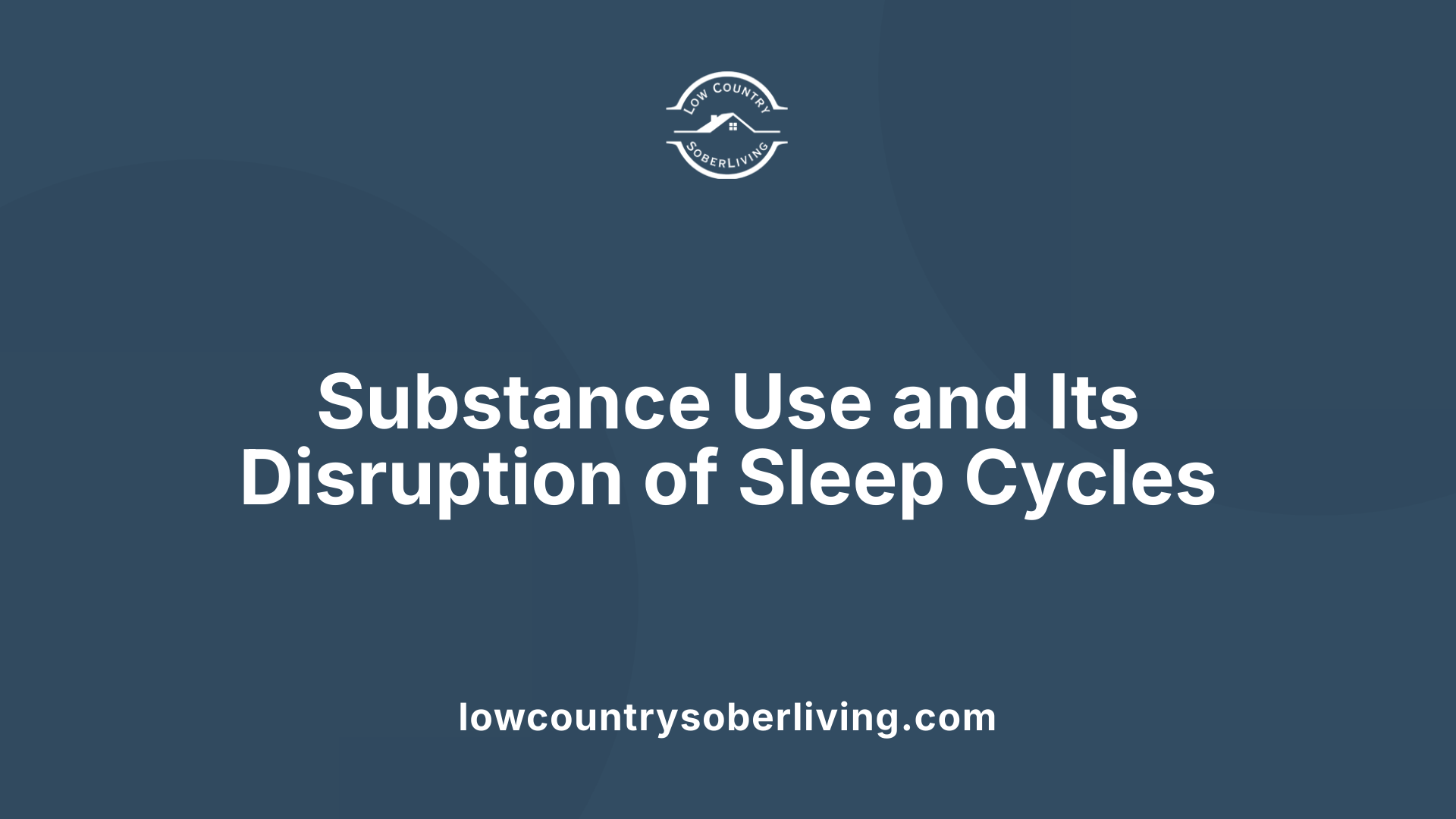
What happens if you are constantly sleep deprived?
Constant sleep deprivation can have severe consequences on overall health, affecting both the mind and body. It significantly increases the risk of developing cognitive decline and neurological disorders such as dementia. Mentally, it is associated with heightened chances of depression, anxiety, and mood disturbances.
Physiologically, prolonged lack of sleep weakens the immune system, making individuals more susceptible to infections. It also raises the risk of chronic illnesses like heart disease, high blood pressure, type 2 diabetes, and obesity. Additionally, sleep deprivation impairs critical brain functions including learning, memory consolidation, decision-making, and reaction times.
These impairments increase the likelihood of accidents, errors, and risky behaviors, posing safety concerns. Over time, persistent sleep loss can shorten lifespan and contribute to early mortality due to its cumulative health effects.
Understanding how drug use impacts sleep cycles helps illuminate why maintaining good sleep hygiene is crucial during recovery and how ongoing disruptions can perpetuate addiction cycles.
Strategies and Therapies for Addressing Sleep Issues in Addiction
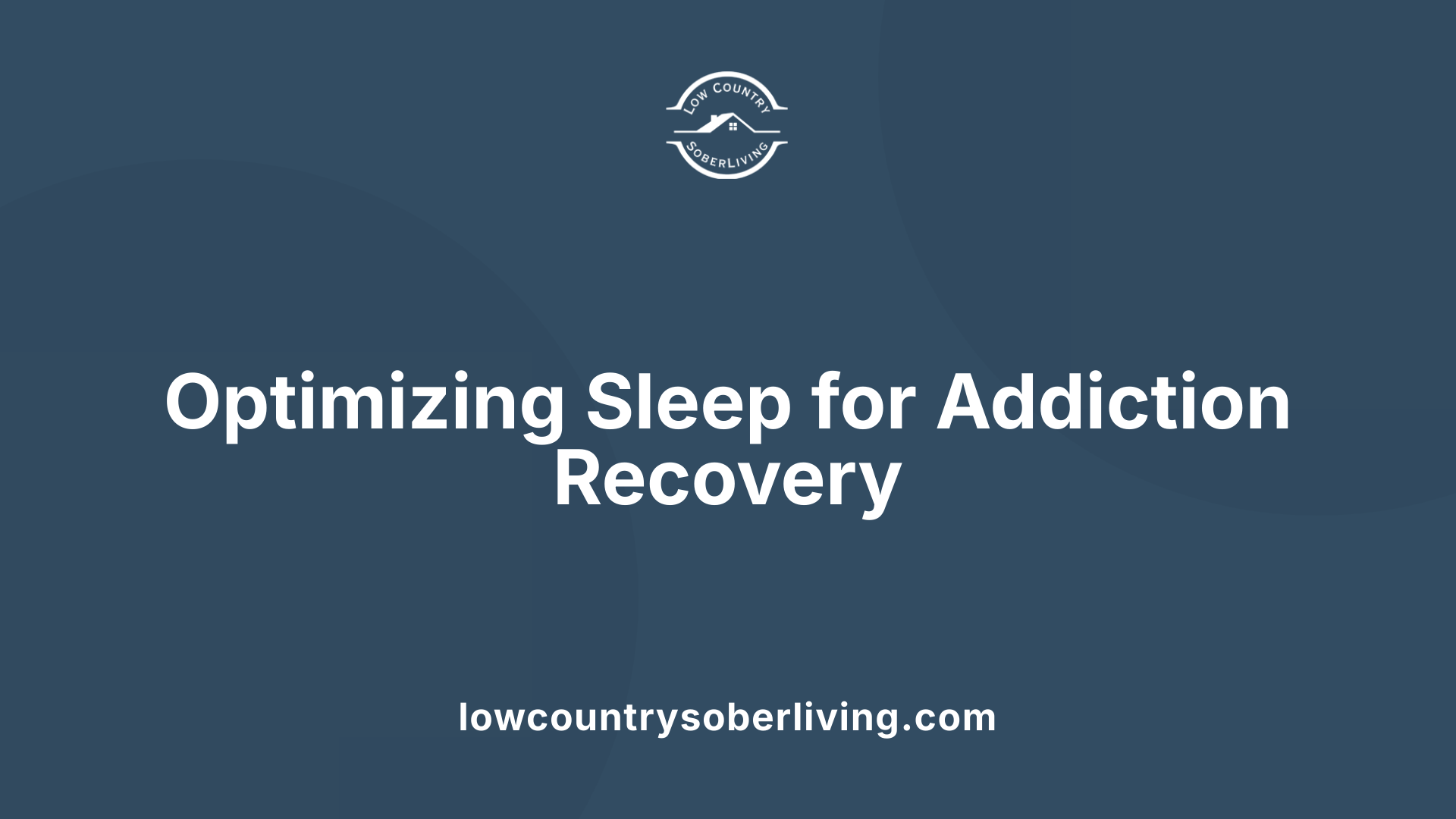
What is the relationship between sleep and recovery?
Sleep is fundamental for effective recovery from substance use disorders. It supports both physical repair and mental restoration by promoting tissue growth, muscle repair, and the release of growth hormones during deep sleep stages. Adequate sleep enhances immune function, consolidates memories, and helps clear waste products from the brain, all of which are crucial for overall health.
During recovery, good sleep quality can reduce stress hormones like cortisol, improve reaction times, and facilitate the body's healing processes. For individuals in addiction treatment, establishing consistent sleep routines and improving sleep hygiene are essential to support recovery efforts. Especially for active individuals and athletes, who often need nine or more hours of sleep nightly, quality rest helps optimize performance and reduce injury risk.
Conversely, sleep deprivation or poor sleep quality can hinder recovery by exacerbating emotional instability, impairing cognitive functions such as judgment and impulse control, and increasing cravings for substances. Addressing sleep issues effectively is, therefore, an integral part of treatment plans, contributing to lower relapse rates and better long-term outcomes.
Prioritizing Sleep to Strengthen Recovery Foundations
In conclusion, recognizing and treating sleep disturbances is essential in the journey of addiction recovery. Sleep not only fosters physical and mental healing but also reduces the vulnerability to relapse by stabilizing brain reward pathways and emotional health. Integrating sleep hygiene practices, behavioral therapies like CBT-I, and safe pharmacological options can significantly improve sleep quality. Addressing sleep issues should be a standard part of addiction treatment programs to promote lasting recovery, improve overall health, and enhance quality of life.
References
- Sleep loss and addiction - ScienceDirect.com
- Drugs, sleep, and the addicted brain | Neuropsychopharmacology
- Sleep Disturbance in Substance Use Disorders - PMC
- [PDF] Treating Sleep Problems of People in Recovery From Substance ...
- Understanding the relationship between sleep deprivation and ...
- Insomnia and Addiction: Understanding the Causes
- Sleep and Addiction - Primary Care Collaborative
- Sleep Disorders in Substance Abusers: How Common Are They?
- Exploring the Cycle of Addiction & Sleep Deprivation

